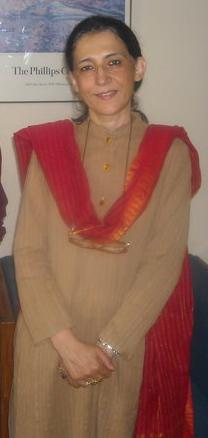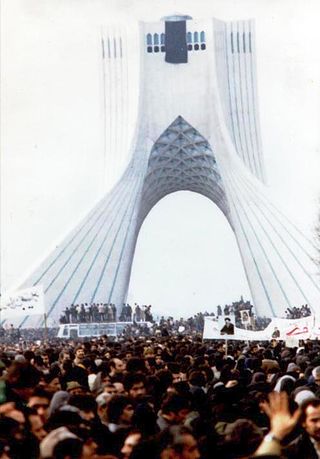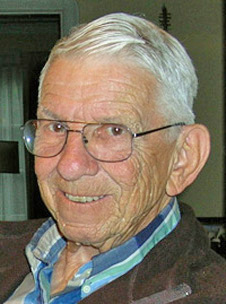Related Research Articles

The Society of the Muslim Brothers, better known as the Muslim Brotherhood is a transnational Sunni Islamist organization founded in Egypt by Islamic scholar and schoolteacher Hassan al-Banna in 1928. Al-Banna's teachings spread far beyond Egypt, influencing today various Islamist movements from charitable organizations to political parties.
The Hanafi school or Hanafism is one of the four major schools of Islamic jurisprudence within Sunni Islam. It was established by the 8th-century scholar, jurist, and theologian Abu Hanifa, a follower whose legal views were primarily preserved by his two disciples Abu Yusuf and Muhammad al-Shaybani. As the oldest and most-followed of the four major Sunni schools, it is also called the "school of the people of opinion". Many Hanafis also follow the Maturidi school of theology.
Political aspects of Islam are derived from the Quran, ḥadīth literature, and sunnah, the history of Islam, and elements of political movements outside Islam. Traditional political concepts in Islam include leadership by elected or selected successors to Muhammad, known as Caliphs in Sunnī Islam and Imams in Shīʿa Islam; the importance of following the Islamic law (sharīʿa); the duty of rulers to seek consultation (shūrā) from their subjects; and the importance of rebuking unjust rulers.
Liberalism and progressivism within Islam involve professed Muslims who have created a considerable body of progressive thought about Islamic understanding and practice. Their work is sometimes characterized as "progressive Islam". Some scholars, such as Omid Safi, differentiate between "Progressive Muslims" versus "Liberal advocates of Islam".

Annemarie Schimmel was an influential German Orientalist and scholar who wrote extensively on Islam, especially Sufism. She was a professor at Harvard University from 1967 to 1992.

Omar ibn Said was a Fula Muslim scholar from Futa Toro in West Africa, who was enslaved and transported to the United States in 1807. Remaining enslaved for the remainder of his life, he wrote a series of Arabic-language works on history and theology, including a short autobiography.

Ayesha Jalal is a Pakistani-American historian who serves as the Mary Richardson Professor of History at Tufts University, and was the recipient of the 1998 MacArthur Foundation Fellowship.

Islamic schools and branches have different understandings of Islam. There are many different sects or denominations, schools of Islamic jurisprudence, and schools of Islamic theology, or ʿaqīdah (creed). Within Islamic groups themselves there may be differences, such as different orders (tariqa) within Sufism, and within Sunnī Islam different schools of theology and jurisprudence. Groups in Islam may be numerous, or relatively small in size.

Nurcholish Madjid, in Indonesia affectionately known as Cak Nur, was a prominent Indonesian Muslim intellectual. Early in his academic career, Nurcholish was a leader in various student organizations. He soon became well known as a proponent for modernization within Islam. Throughout his career he continued to argue that for Islam to be victorious in the global struggle of ideas, it needs to embrace the concepts of tolerance, democracy and pluralism.
An Islamic state has a form of government based on sharia law. As a term, it has been used to describe various historical polities and theories of governance in the Islamic world. As a translation of the Arabic term dawlah islāmiyyah it refers to a modern notion associated with political Islam (Islamism). Notable examples of historical Islamic states include the state of Medina, established by the Islamic prophet Muhammad, and the Arab caliphate which continued under his successors and the Umayyads.

Carl W. Ernst is the William R. Kenan, Jr., Distinguished Professor Emeritus of Islamic studies at the Department of Religious Studies at the University of North Carolina at Chapel Hill. He was also the founding director (2003-2022) of the UNC Center for Islamic and Middle East Studies.

Jihadism is a neologism for militant Islamic movements that are perceived as existentially threatening to the West. It is a form of religious violence and has been applied to various insurgent Islamic extremist, militant Islamist, and terrorist individuals and organizations whose ideologies are based on the Islamic notion of lesser jihad from the classical interpretation of Islam. It has also been applied to various Islamic empires in history, such as the Rashidun and Umayyad caliphates of the early Muslim conquests, and the Ottoman Empire, who extensively campaigned against non-Muslim nations in the name of jihad.
Omid Safi is an Iranian-American professor of Asian and Middle Eastern Studies at Duke University. He was the Director of Duke Islamic Studies Center from July 2014 to June 2019 and was a columnist for On Being. Safi specializes in Islamic mysticism (Sufism), contemporary Islamic thought and medieval Islamic history. Before joining Duke University, Safi was a professor at the University of North Carolina Chapel Hill. Prior to joining the University of North Carolina at Chapel Hill, he was on faculty at Colgate University as an Assistant Professor of Philosophy and Religion from 1999 - 2004.

'Abd al-Rahman al-Kawakibi was a Syrian author and Pan-Arab solidarity supporter. He was one of the most prominent intellectuals of his time; however, his thoughts and writings continue to be relevant to the issues of Islamic identity and Pan-Arabism. His criticisms of the Ottoman Empire eventually led to Arabs calling for the sovereignty of the Arab Nations, setting the basis for Pan-Arab nationalism. Al-Kawakibi articulated his ideas in two influential books, The nature of tyranny and the struggle against slavery and Mother of All Villages. He died in 1902 of “mysterious” causes. His family alleged that he was poisoned by Turkish agents.
James Lowe Peacock III is an American anthropologist.

Casualties of the Iranian Revolution refers to those who lost their lives during the Iranian Revolution. Observers differ on how many people died during the Iranian Revolution. The current Islamic government uses the figure of 60,000 killed; in reference to this figure, the military historian Spencer C. Tucker notes that "Khomeini's regime grossly overstated the revolution's death toll for propaganda purposes". The sociologist Charles Kurzman, drawing on later more detailed records from the Islamic Republic, believes the number was closer to 2,000-3,000.

Charles Grier Sellers Jr. was an American historian. Sellers was best known for his book The Market Revolution: Jacksonian America, 1815–1846, which offered a new interpretation of the economic, social, and political events taking place during the United States' Market Revolution.

This is a list of books about Nazi Germany, the state that existed in Germany during the period from 1933 to 1945, when its government was controlled by Adolf Hitler and his National Socialist German Workers' Party. It also includes some important works on the development of Nazi imperial ideology, totalitarianism, German society during the era, the formation of anti-Semitic racial policies, the post-war ramifications of Nazism, along with various conceptual interpretations of the Third Reich.
Emad Shahin is an Egyptian professor of political science. He is currently a visiting professor at the School of Foreign Service at Georgetown University. He is editor-in-chief of The Oxford Encyclopedia of Islam and Politics, and professor of public policy at The American University in Cairo. His work focuses on Comparative Politics, Democracy and Political Reform in Muslim societies, Islam and Politics, and Political Economy of the Middle East.

Liberia–Turkey relations are the foreign relations between Liberia and Turkey. The Turkish ambassador in Accra, Ghana is also accredited to Liberia since 2013. Liberian Embassy in Brussels is accredited to Turkey. Turkey will be opening an embassy in Liberia’s capital Monrovia 'as soon as possible.'
References
- ↑ Smith, Joy Lukachick (July 23, 2015). "Terrorist or extremist, was Abdulazeez a man with a plan?". Chattanooga Times Free Press . Retrieved July 23, 2015.
- ↑ "Curriculum Vitae". Charles Kurzman. University of North Carolina at Chapel Hill.